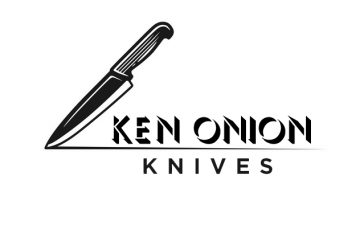
When it comes to choosing a knife blade for your kitchen or work, you need to make sure you select the best steel. You need to choose the right metal that will hold its edge, and you also need to make sure you get the most for your money. There are a number of different factors to consider, including toughness, cost, and corrosion resistance. To help you find the best material, we’ve assembled a list of the top four features that you should look for when selecting a knife blade.
Cryogenic processing improves wear resistance
Cryogenic processing has been around for more than a century and is a proven process for improving wear resistance of a variety of metals. It is a one-time procedure that enhances the longevity of blades and other components, improves sharpness, and reduces the number of maintenance cycles needed.
The benefits of cryogenic processing include less material removal, a softer micro-smooth finish, and increased durability. Cold temperatures also promote the formation of a uniform atomic distribution in the metal, eliminating weak points, and improving overall stability.
The effects of cryo processing are similar to conventional heat treatment, but the process is much more precise and timed. This allows it to be applied to a wide range of different materials. Moreover, it is a cost-effective one-time treatment.
Triple tempering improves edge retention
D2 is one of the most widely used tool steels in the world today. It offers a combination of cost-effectiveness, availability, and performance. But there are some downsides to using D2 blades, including poor edge retention. Fortunately, there are some tricks to get the most out of this popular steel.
Several heat treatment processes can be used to make D2 tougher. One of the most common is vacuum hardening. Vacuum hardening helps prevent surface oxidation. Another heat treatment process is cryogenic processing. Cryogenic processing can improve edge retention, and it also increases wear resistance.
However, it is important to note that the toughness of D2 can vary from one hardness to the next. This is because of the shape of the steel and the annealing rate.
Aqueous corrosion resistance
D2 is a tool steel that is used in a wide variety of applications, but it is not just for knives. D2 is also used to manufacture dies, stamping tools, and other metal parts that will endure the stress of production equipment.
D2 is a well-proven tool steel that has been in existence for quite some time. It offers a lot of wear resistance, though its toughness is not as strong as some of its more exotic competitors.
The ability to harden and quench is one of D2’s more useful attributes. It can be made extremely hard to resist wear, but it is a process that requires a high degree of precision. A professional die shop can be relied upon to heat treat D2 for maximum performance.
Toughness
D2 steel is a high carbon, high chromium steel that was developed in England in the early 1900s. Its performance is attributed to the alloy’s chemical makeup.
D2 is known for its excellent wear resistance, making it a great choice for knife blades. However, this steel is not a hand-forged material. As such, it is susceptible to decarburization and needs special care. Nonetheless, it is a popular choice.
D2 can be hardened and tempered at the right time and place, resulting in a very tough steel. The addition of Mo and V in the steel further increases its toughness. This combination can result in a 25% increase in toughness.
In order to produce a blade with good edge retention, it is important to sharpen it correctly. D2 can also benefit from polishing to improve its corrosion resistance.
Cost
When you are in the market for a new knife, you may want to know what kind of steel to use. If you are looking for a high-performance blade, then you should consider D2 steel. However, before you decide, you should learn more about its advantages and disadvantages.
First, you should know that D2 is not for everyone. It is a very hard steel that can be very expensive to buy. The alloy also requires a lot of processing.
For example, it has to be tempered correctly. This will result in improved plasticity and toughness. During tempering, the blade can be heated to a certain temperature. While the heat treatment process is relatively simple, it can be tedious to carry out.
